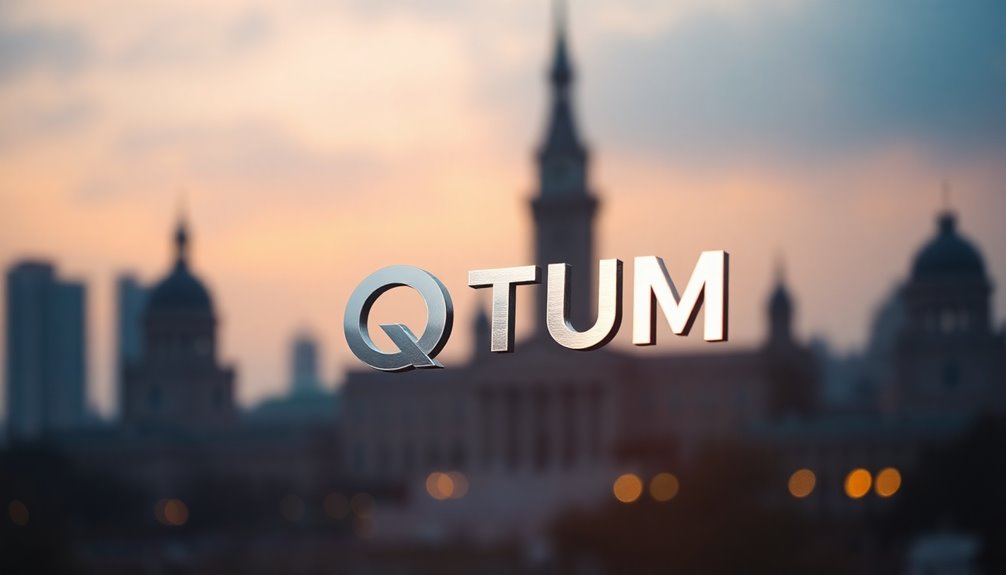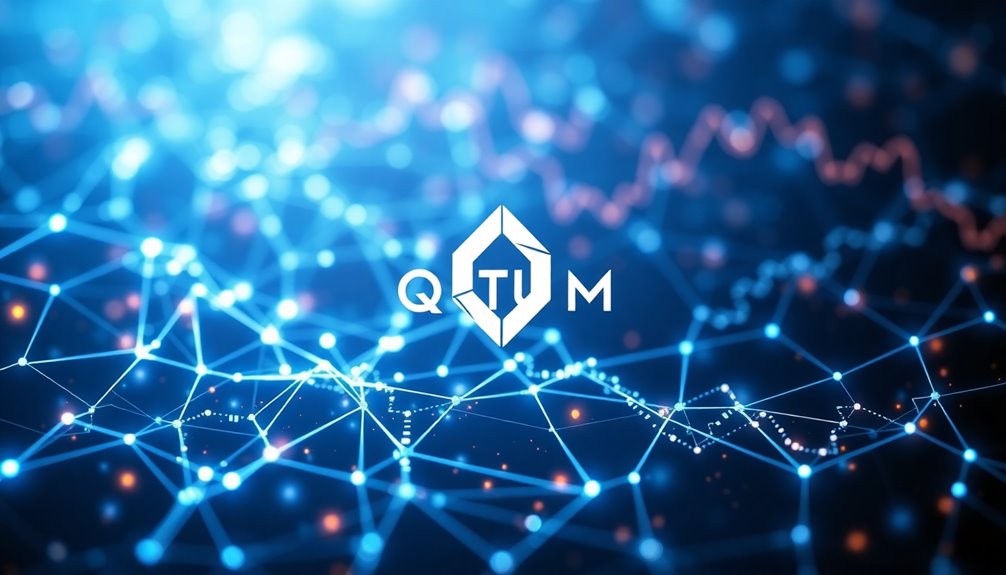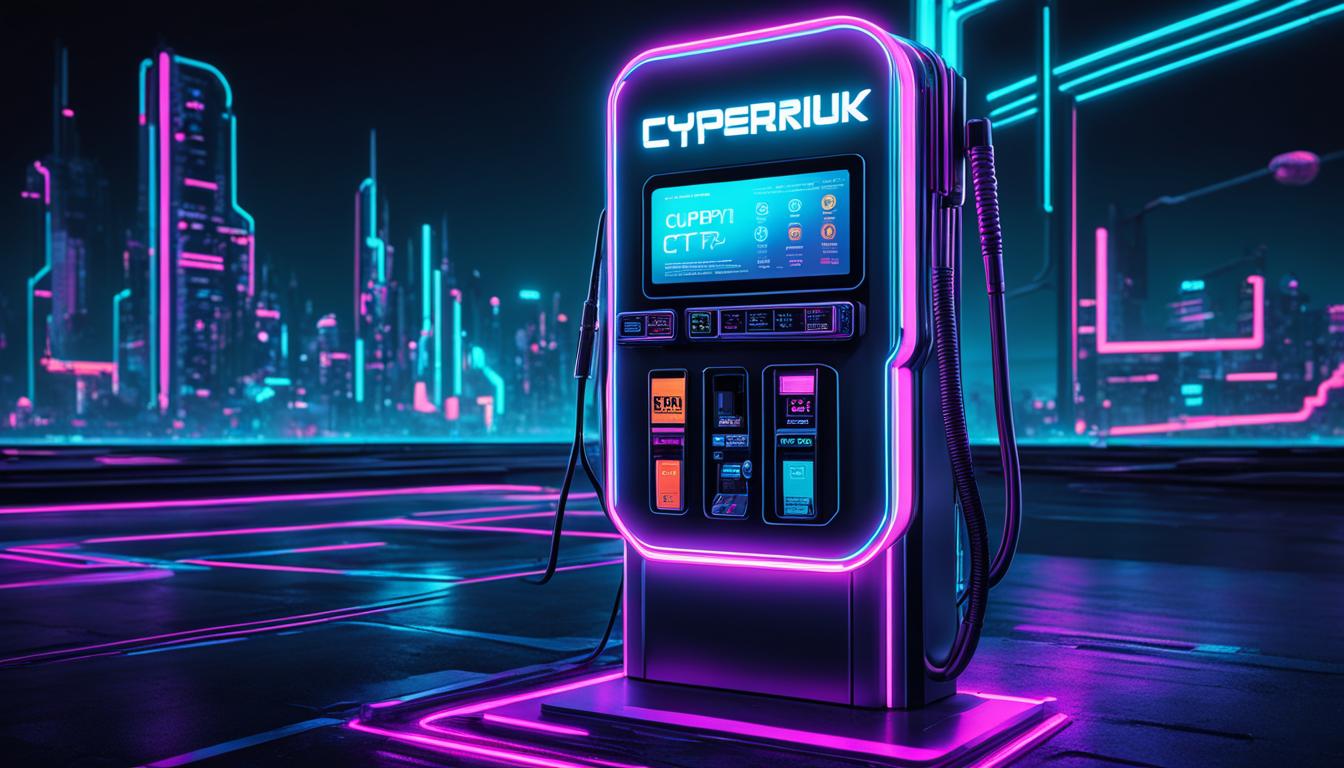Qtum is a cutting-edge hybrid blockchain that merges the best aspects of Bitcoin and Ethereum, enhancing functionality and security. It uses a unique consensus mechanism called Mutualized Proof of Stake (MPoS), which ensures network safety while lowering hardware requirements. Qtum promotes decentralized finance, making it attractive for innovative applications in various sectors, including healthcare and entertainment. The platform also prioritizes regulatory compliance through its Decentralized Governance Protocol, making it adaptable to changes. With notable partnerships and market confidence, Qtum is reshaping the future of blockchain. There's a lot more about its features and potential, so keep exploring!
Key Takeaways
- Qtum is a hybrid blockchain that combines Bitcoin's security with Ethereum's smart contract functionality through its unique Mutualized Proof of Stake (MPoS) consensus mechanism.
- The Decentralized Governance Protocol (DGP) allows for on-chain modifications, ensuring adaptability to regulatory changes and community-driven governance.
- Qtum exhibits significant price volatility, currently priced around $3.23, with 96% bullish market sentiment indicating strong trader confidence.
- Strategic partnerships with companies like PwC and AWS enhance Qtum's enterprise blockchain solutions, targeting various sectors including healthcare and finance.
- Qtum promotes decentralized finance (DeFi) and interoperability with Ethereum, supporting innovative applications in IoT, supply chains, and blockchain-based gaming.
Qtum's Unique Consensus Mechanism

While many blockchain networks rely on traditional consensus mechanisms, Qtum stands out with its innovative Mutualized Proof of Stake (MPoS). This unique approach secures the network by increasing the cost of junk contract spam attacks through delayed block reward payments.
You'll notice that rewards are shared equally between the current validator and the nine previous ones, while a portion is held back for 500 blocks—making it tough for attackers to predict rewards. Additionally, MPoS reduces competition for computational power and lowers hardware requirements, promoting decentralization. Furthermore, the combination of strengths from both chains enhances the overall functionality of Qtum's consensus mechanism.
Compared to Bitcoin's Proof of Work, Qtum's MPoS is more energy-efficient, enhancing transaction speeds and scalability while maintaining network stability and security against malicious activities.
Regulatory Changes Impacting Qtum

As the regulatory landscape for cryptocurrencies evolves, Qtum is positioning itself to navigate these changes effectively. Its Decentralized Governance Protocol (DGP) allows for on-chain modifications to network parameters, ensuring flexibility without hard forks.
By enabling community involvement in decision-making, you can feel confident that changes reflect collective interests. Qtum's unique hybrid blockchain architecture enhances its adaptability and resilience in the face of regulatory challenges.
Qtum also prioritizes compliance by integrating traditional financial governance practices into its decentralized model. With partnerships like Blockpass, it supports On-chain KYC solutions, enhancing your regulatory compliance.
However, be aware of the legal and regulatory risks that accompany cryptocurrency use, including potential enforcement actions. Staying informed about these challenges will help you adapt and thrive in an ever-changing environment.
Cryptocurrency Price Volatility

Cryptocurrency price volatility is a defining characteristic of the digital asset market, and Qtum is no exception. Factors like market sentiment and trading volume can cause rapid price fluctuations. Positive news can boost prices as investors anticipate gains, while negative news often leads to sharp declines. Emotional trading further exacerbates these movements.
Over the last 30 days, Qtum experienced a price volatility of 10. 28%, with 47% of those days showing gains. Currently, its price hovers around $3. 23, with predictions ranging between $0. 98 and $5. 60. While investing in Qtum poses challenges due to this volatility, it also offers potential for significant returns, making it a compelling option for risk-tolerant investors. Additionally, the current market sentiment is 96% bullish, indicating a strong confidence among traders. Understanding crypto market surges can help investors navigate these fluctuations more effectively. This positive sentiment is further reinforced by recent market trends, including Solana records $270 price surge, which has captured the attention of investors looking for new opportunities. As more capital flows into the cryptocurrency sector, tokens like Qtum may benefit from heightened interest and trading activity. Investors should remain vigilant, however, as swift price movements can also lead to unexpected downturns, underscoring the importance of a well-researched investment strategy.
Corporate Blockchain Partnerships

The dynamic nature of the cryptocurrency market is pushing companies to explore innovative solutions, and partnerships in the blockchain space are gaining momentum. Qtum's strategic collaborations illustrate this trend.
By teaming up with PwC, they enhance their ability to tailor blockchain solutions for businesses. Their partnership with Amazon Web Services (AWS) aims to secure enterprise blockchain deployments, improving data security and reducing costs.
Additionally, collaborations with Medicis Ventures and Baofeng are set to revolutionize healthcare and entertainment, respectively. Qtum also focuses on identity verification with Blockpass and crypto payments through Zeux, broadening usability. The recent partnership with Indacoin aims to simplify QTUM token acquisition via Visa and Mastercard, making it more accessible for users.
These partnerships not only drive innovation but also foster a comprehensive blockchain ecosystem, enhancing security, transparency, and efficiency across various industries.
Government Regulations and Blockchain Events

While navigating the evolving landscape of blockchain technology, you must consider the impact of government regulations and upcoming events.
Various federal agencies, including the SEC and CFTC, are engaging with blockchain but have yet to establish formal rules. States like Wyoming promote blockchain through favorable regulations, while others, like California and New York, impose strict enforcement actions against exchanges. Additionally, the Biden Administration's Executive Order outlines key priorities for digital assets that aim to enhance consumer protection and promote responsible innovation.
As you look ahead, keep an eye on significant blockchain events, such as the DC Blockchain Summit in March 2025 and Paris Blockchain Week in April 2025.
These gatherings will offer valuable insights into regulatory trends and foster connections within the industry, helping you stay informed and navigate the regulatory landscape effectively.
Market Adoption Trends

As blockchain technology continues to evolve under varying government regulations, market adoption trends are becoming increasingly evident across multiple sectors.
You'll find Qtum leading the charge in decentralized finance (DeFi), enabling platforms for lending and borrowing, which promotes financial inclusion. Its interoperability with Ethereum attracts developers and users alike, making it easier to leverage Ethereum's smart contracts for innovative applications.
In the Internet of Things (IoT) space, Qtum enhances security and transparency, ensuring reliable data management. Furthermore, it revolutionizes supply chains by verifying product origins, significantly reducing fraud.
Lastly, in the gaming sector, Qtum supports blockchain-based games and NFT creation, securing in-game assets and redefining digital art ownership.
Frequently Asked Questions
How Can I Buy QTUM Tokens?
To buy QTUM tokens, start by choosing a cryptocurrency exchange that supports QTUM.
Create an account and complete the necessary identity verification.
Fund your account using your preferred payment method.
Then, navigate to the QTUM market, enter the amount you want to purchase, and confirm the transaction.
Once the purchase is complete, consider transferring your QTUM to a hardware wallet for enhanced security.
This keeps your investment safe and secure.
What Wallets Support QTUM Storage?
If you're looking to store QTUM tokens, you've got several wallet options.
The official Qtum Core Wallet offers a secure and user-friendly interface. Third-party options like Binance Wallet, Ledger, and Trust Wallet also support QTUM.
For mobile access, consider the Qtum Mobile Wallet or the Binance Mobile Wallet.
If security's a priority, hardware wallets like Ledger and Trezor are excellent choices for safe storage.
Choose the one that fits your needs best!
Is QTUM a Good Investment?
When weighing whether QTUM's a worthy investment, consider its captivating combination of characteristics.
It's known for volatility, which can be a double-edged sword, offering both opportunity and risk.
With a unique hybrid architecture and energy-efficient proof-of-stake consensus, QTUM stands out.
Yet, remember the potential pitfalls, like market fluctuations and regulatory uncertainties.
If you're prepared for the risks, QTUM might be a fascinating fit for your investment portfolio.
What Are Qtum's Main Competitors?
Qtum faces several main competitors in the blockchain space.
You'll find MultiChain, NEM, BW, Lisk, Algorand, Lido, Kava, and ThunderCore Staking among them.
Each of these platforms offers unique features and services, ranging from DeFi solutions to smart contracts.
NEM, for instance, has a significant revenue stream, while others like Kava focus on decentralized finance.
Keep an eye on their developments, as they can influence Qtum's market position.
How Does QTUM Handle Smart Contracts?
They say, "A stitch in time saves nine," and that's how Qtum approaches smart contracts.
It integrates the Ethereum Virtual Machine for seamless execution while utilizing the Account Abstraction Layer to bridge the UTXO model with smart contracts.
You'll appreciate the security from the UTXO model and Proof-of-Stake consensus.
Plus, you can develop dApps using Solidity, ensuring your projects run efficiently and securely on the Qtum network without unnecessary hiccups.
Conclusion
In summary, Qtum stands out with its hybrid blockchain approach, combining the best of Bitcoin and Ethereum. Did you know that as of 2023, Qtum's partnerships with over 40 corporations have significantly boosted its market presence? This impressive collaboration showcases its potential for real-world applications. As regulatory landscapes shift and market trends evolve, staying informed about Qtum could be your key to navigating the ever-changing cryptocurrency landscape. Don't miss out on what's next!









